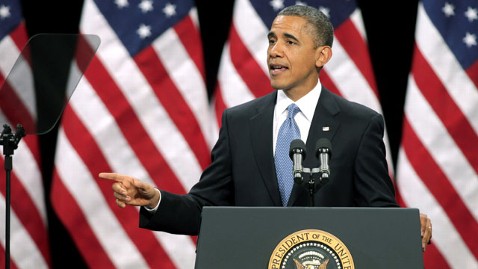Jane J. Lee
Homing pigeons (Columba livia) have been prized for their navigational abilities for thousands of years. They've served as messengers during war, as a means of long-distance communication, and as prized athletes in international races.
But there are places around the world that seem to confuse these birds—areas where they repeatedly vanish in the wrong direction or scatter on random headings rather than fly straight home, said Jon Hagstrum, a geophysicist who authored a study that may help researchers understand how homing pigeons navigate.
Hagstrum's paper, published online Wednesday in the Journal of Experimental Biology, proposes an intriguing theory for homing pigeon disorientation—that the birds are following ultralow frequency sounds back towards their lofts and that disruptions in their ability to "hear" home is what screws them up.
Called infrasound, these sound waves propagate at frequencies well below the range audible to people, but pigeons can pick them up, said Hagstrum, who works at the U.S. Geological Survey in Menlo Park, California.
"They're using sound to image the terrain [surrounding] their loft," he said. "It's like us visually recognizing our house using our eyes."
Homeward Bound?
For years, scientists have struggled to explain carrier pigeons' directional challenges in certain areas, known as release-site biases.
This "map" issue, or a pigeon's ability to tell where it is in relation to where it wants to go, is different from the bird's compass system, which tells it which direction it's headed in. (Learn about how other animals navigate.)
"We know a lot about pigeon compass systems, but what has been controversial, even to this day, has been their map [system]," said Cordula Mora, an animal behavior researcher at Bowling Green State University in Ohio who was not involved in the study.
Until now, the two main theories say that pigeons rely either on their sense of smell to find their way home or that they follow the Earth's magnetic field lines, she said.
If something screwed up their sense of smell or their ability to follow those fields, the thinking has been, that could explain why pigeons got lost in certain areas.
But neither explanation made sense to Hagstrum, a geologist who grew interested in pigeons after attending an undergraduate lecture by Cornell biologist William Keeton. Keeton, who studied homing pigeons' navigation abilities, described some release-site biases in his pigeons and Hagstrum was hooked.
"I was just stunned and amazed and fascinated," said Hagstrum. "I understand we don't get dark matter or quantum mechanics, but bird [navigation]?"
So Hagstrum decided to look at Keeton's pigeon release data from three sites in upstate New York. At Castor Hill and Jersey Hill, the birds would repeatedly fly in the wrong direction or head off randomly when trying to return to their loft at Cornell University, even though they had no problems at other locations. At a third site near the town of Weedsport, young pigeons would head off in a different direction from older birds.
There were also certain days when the Cornell pigeons could find their way back home from these areas without any problems.
At the same time, homing pigeons from other lofts released at Castor Hill, Jersey Hill, and near Weedsport, would fly home just fine.
Sound Shadows
Hagstrum knew that homing pigeons could hear sounds as low as 0.05 hertz, low enough to pick up infrasounds that were down around 0.1 or 0.2 hertz. So he decided to map out what these low-frequency sound waves would have looked like on an average day, and on the days when the pigeons could home correctly from Jersey Hill.
He found that due to atmospheric conditions and local terrain, Jersey Hill normally sits in a sound shadow in relation to the Cornell loft. Little to none of the infrasounds from the area around the loft reached Jersey Hill except on one day when changing wind patterns and temperature inversions permitted.
That happened to match a day when the Cornell pigeons had no problem returning home.
"I could see how the topography was affecting the sound and how the weather was affecting the sound [transmission]," Hagstrum said. "It started to explain all these mysteries."
The terrain between the loft and Jersey Hill, combined with normal atmospheric conditions, bounced infrasounds up and over these areas.
Some infrasound would still reach Castor Hill, but due to nearby hills and valleys, the sound waves approached from the west and southwest, even though the Cornell loft is situated south-southwest of Castor Hill.
Records show that younger, inexperienced pigeons released at Castor Hill would sometimes fly west while older birds headed southwest, presumably following infrasounds from their loft.
Hagstrum's model found that infrasound normally arrived at the Weedsport site from the south. But one day of abnormal weather conditions, combined with a local river valley, resulted in infrasound that arrived at Weedsport from the Cornell loft from the southeast.
Multiple Maps
"What [Hagstrum] has found for those areas are a possible explanation for the [pigeon] behavior at these sites," said Bowling Green State's Mora. But she cautions against extrapolating these results to all homing pigeons.
Some of Mora's work supports the theory that homing pigeons use magnetic field lines to find their way home.
What homing pigeons are using as their map probably depends on where they're raised, she said. "In some places it may be infrasound, and in other places [a sense of smell] may be the way to go."
Hagstrum's next steps are to figure out how large an area the pigeons are listening to. He's also talking to the Navy and Air Force, who are interested in his work. "Right now we use GPS to navigate," he said. But if those satellites were compromised, "we'd be out of luck." Pigeons navigate from point to point without any problems, he said.










